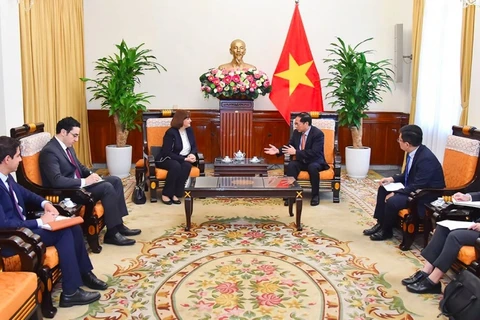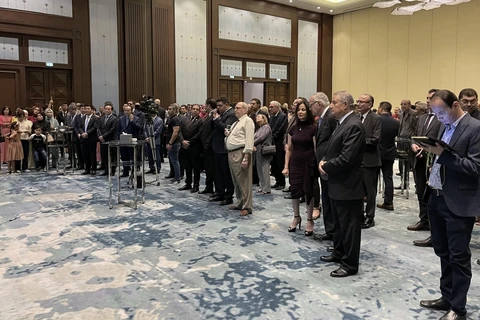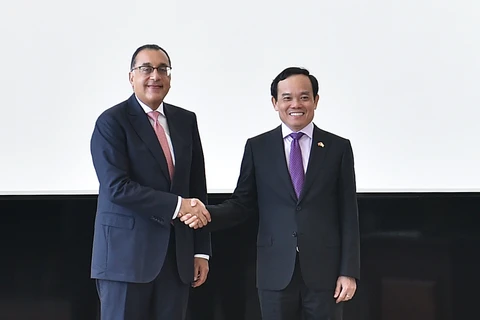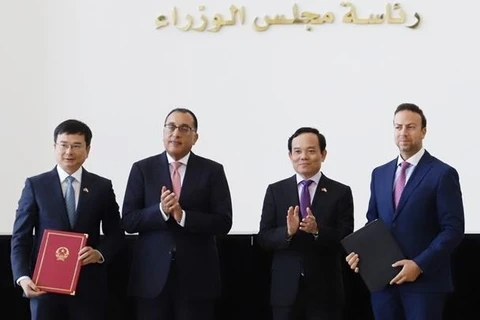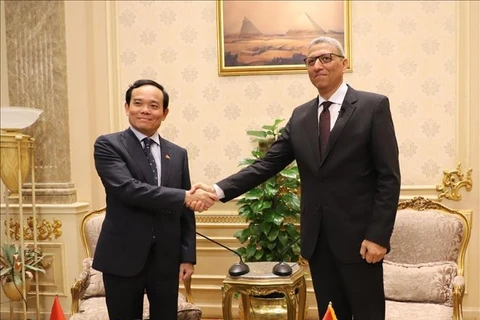Cairo (VNA) – Trade between Vietnam and Egypt sees a promising outlook as the market with a population of over 100 million people is paying more and more attention to Vietnamese agricultural products, said Head of the Trade Office at the Vietnamese Embassy in Egypt Nguyen Duy Hung.
Egypt is Vietnam's second-largest trading partner in the African market, accounting for 19% of Vietnam's total exports to the continent in 2022.
Exports from Vietnam to Egypt last year reached 502.8 million USD, including coffee, pepper, cashew nuts, copra, frozen pangasius fillets, electronic products and components, phones, computers, textiles, machinery, and equipment.
However, Vietnam's export turnover to Egypt in the first six months of this year reached only 236.2 million USD, down 11.2% from the same period last year.
This decline is mainly due to Egypt's facing a shortage of foreign currency, its domestic currency depreciates rapidly against the USD, and high inflation.
The Egyptian government had to apply measures to tighten foreign exchange management, regulate imports to ensure foreign currency for the import of essential goods and production materials, and reduce the import of non-essential goods.
In addition, Vietnam and Egypt have not yet signed any free trade agreement (FTA), so Egypt imposes quite high taxes on imports from Vietnam.
Many Vietnamese products, especially consumer goods, find it difficult to compete with imports from countries that have signed FTAs with Egypt.
Hung said that as international trade always has many potential risks of commercial disputes, and even frauds, Vietnamese companies exporting to Egypt need to attach great importance to the country’s legal frameworks and commercial disputes.
He said two of the most common commercial disputes that Vietnamese and Egyptian companies faced in the past time relate to late payment and brokerage.
That is why Vietnamese enterprises need to carefully consider the contract terms on delivery and payment methods, as well as add a clause to handle arising problems so as to minimise risks, especially in the case of goods having to stay at port for long due to the problem of late payment from the importer.
In addition, businesses should limit signing contracts through brokers.
Contracts should include an advance payment clause of at least 30% of the total value, as a norm in Egypt, Hung said.
In addition, when receiving any request for the contract’s changes from the importer, the companies needs to check and re-verify the information and ask its partner to send an official lawful document so as to have a basis for settlement in case a dispute occurs.
According to Hung, Egypt is currently reforming customs and import-export procedures, so Vietnamese businesses also need to update relevant changes before signing contracts with their Egyptian partners./.

